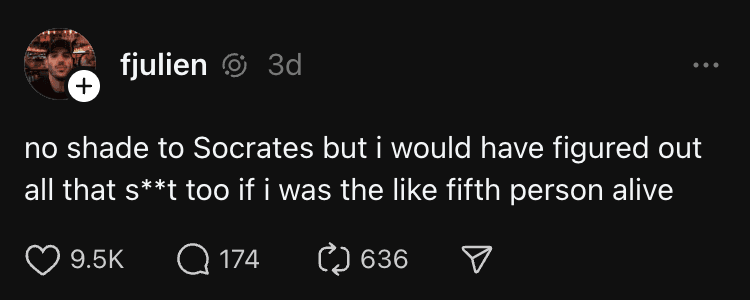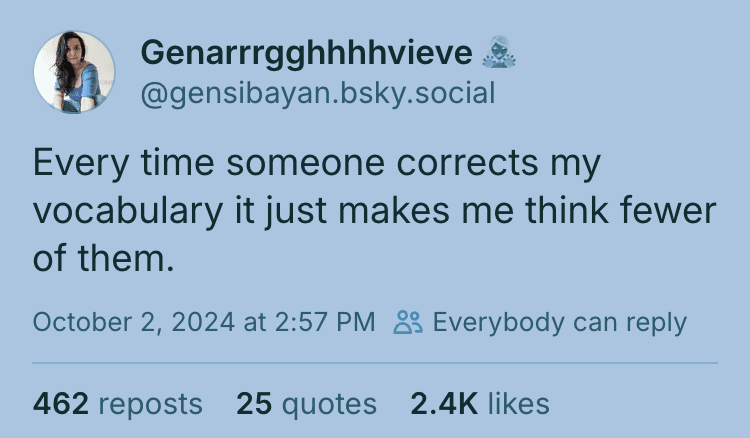October 18, 2024
Links You’ll Love
Issue #5
Expertise, AI, and a story for the ages.
Experts vs. Imitators
Shane Parrish’s blog post starts off with a simple assertion:
If you want the highest quality information, you have to speak to the best people. The problem is many people claim to be experts, who really aren’t.
How do you tell the difference between an expert and an imitator?
I’ve encountered this many times at work, in my personal life, and out in the world. If you’re sick, how can you tell if you have a good doctor when you don’t have a medical degree yourself? With a few tips and tricks, you can get a good sense of whether someone is an expert or an imitator.
Hello, you’re here because you said AI image editing was just like Photoshop
Politicians are creating deceptive deepfakes their opponents, high schoolers are creating nude images of their teenage classmates, and ordinary people are discovering fake images of themselves online. It’s common to hear, “but you’ve been able to do this with Photoshop forever”, however, this is something new. We’re about to find out what happens when anyone with a smartphone can manipulate an image, without having to pay for expensive software or learning complicated editing tools. Therefore, it’s worth reading about how exactly this new status quo is different.
“We’ve had Photoshop for 35 years” is a common response to rebut concerns about generative AI, and you’ve landed here because you’ve made that argument in a comment thread or social media.
There are countless reasons to be concerned about how AI image editing and generation tools will impact the trust we place in photographs and how that trust (or lack thereof) could be used to manipulate us. So, to save us all time and energy, and from wearing our fingers down to nubs by constantly responding to the same handful of arguments, we’re just putting them all in a list in this post.
Let’s stop counting centuries
I love it when people care so deeply about an esoteric pet peeve that they’re willing to write an impassioned and detailed blog post about it. As a person living in the 2̵1̵s̵t̵ c̵e̵n̵t̵u̵r̵y̵ year 2024, I found this argument quite compelling.
Here’s a sentence from Steven Pinker’s Enlightenment Now:
The Enlightenment is conventionally placed in the last two-thirds of the 18th century, though it flowed out of the Scientific Revolution and the Age of Reason in the 17th century and spilled into the heyday of classical liberalism in the first half of the 19th.
Let’s try an experiment. I’m going to give you a question, which you should try to answer as quickly as you can. Ready? OK: Did the American revolution happen before, during, or after the Enlightenment?
If you liked this post, reach out and let me know! If you have any suggestions, reach out and let me know! If you read something wonderful you think I should know about, you know the drill, reach out and let me know!





